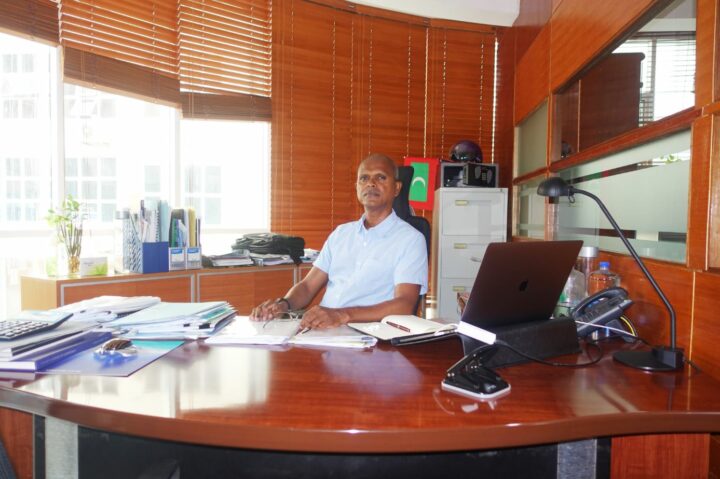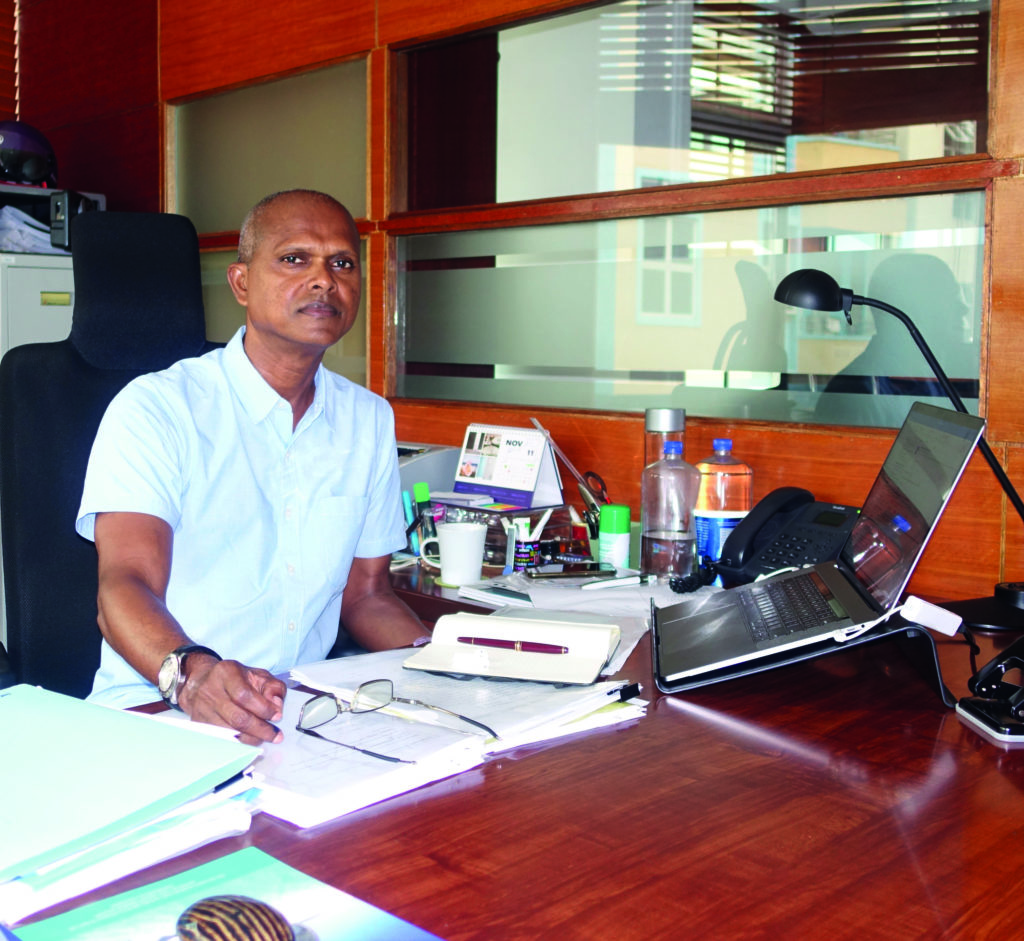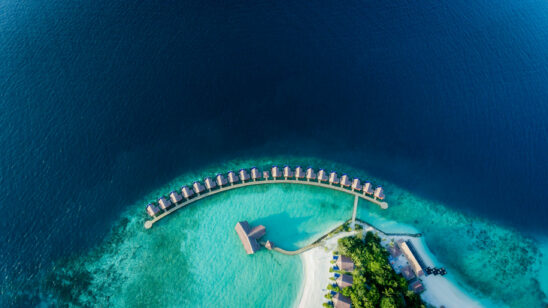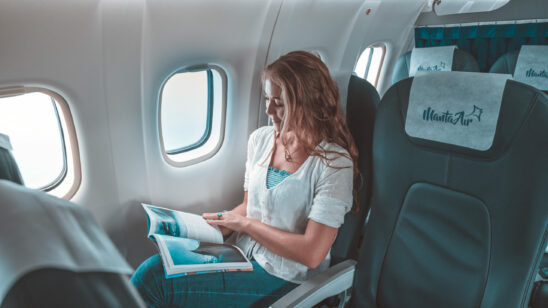
Hussain Thoufeeq Ali, Managing Director, Silver Sands Pvt. Ltd.
The Maldives tourism industry came to life in 1972 with the introduction of 60 tourist beds in two resort islands. Since then, tourism has been flourishing in the country for over four decades now. However, the recent influx of international chain hotels and guesthouses has opened up the Maldives tourism industry from its previous base of only premium holidaymakers to now include mid-market travellers and backpackers.
Hussain Thoufeeq Ali, Managing Director of Silver Sands Pvt. Ltd., a key associate of the industry, shares his views on the current state of the tourism industry in the Maldives and the perceptions of key players in the industry. He also talks about the changes that have taken place in the last couple of years, and shares his predictions for future direction and growth.
With their philosophy of making things anew, Silver Sands is a one-stop travel boutique for those who know and deserve the best in life. They are committed to holistic holidaying where every aspect of a client’s holiday is looked after.
Hotelier Maldives: The last few years have been a tumultuous period for the tourism industry. There has been internal conflict in the country that has affected the industry, and this has also been a period during which the shape of the industry has continued to evolve in terms of the source markets, the choice of tourism products we offer and expectations of visitors in terms of what they want to experience during their holiday in the Maldives.
What has been your experience/challenges in relation to the above and how has your area of interest in the industry grown/evolved, if at all, during this period?
Hussain Thoufeeq Ali: Indeed the last few years have been quite challenging for the tourism industry in the Maldives; in my opinion, both internal and external factors have contributed to this. Very briefly, the exponential growth of the guest houses, the opening of new resorts (which are almost all focusing on the luxury market), the change in room rates and political instability, in my opinion, are the major internal factors.
-

Hussain Thoufeeq Ali, Managing Director of Silver Sands Pvt. Ltd.
The devaluation of the Ruble in 2014 was one of the major external factors that have affected our tourism industry, especially in the upmarket segment, where we have our presence. And secondly, there has been tremendous growth in the tourism industry in some of the southern European countries like Portugal, Spain, Croatia, and Greece. Even though, these countries are not our direct competitors, due to the volatility in some of the Middle Eastern countries (especially Syria and Iraq) Europeans may have preferred short-haul destinations.
Despite the challenges in the tourism industry, all the business of Silver Sands has grown in the past years. Due to the construction of new resorts and renovation projects in some of our existing resorts, EVO group has been able to increase its business in the past years. Our marine shop, SEA GEAR has also been able to reach out to an impressive number of new resort clients and has grown tremendously in the last two years. Finally, in the past three years (2016 – 2018), we have opened five new diving, water sports and excursion centres in five different resorts, making our total number of operations to fourteen.
Hotelier Maldives: Many of the tourist properties that are under development today are vastly different from what we have developed during the first four and a half decades since the inception of tourism in the Maldives. Looking at the development of infrastructure that has been undertaken and the number of tourist beds under development, the industry is set to expand exponentially during the next decade.
How do you see the industry evolving in the near and distant future and how are you preparing for this change?
Do you believe the industry is prepared to take on this challenge and how do you think this change and growth will affect the shape of the industry as it evolves?
Hussain Thoufeeq Ali: With the growth of the tourism industry, one of the biggest challenges that we face is in the area of human resources. Even as we speak, we do not have enough people willing to work in the industry. As a company that is engaged in diving and water sports business, we need captains and water sports staff. In the maintenance area, we need mechanics, engineers, welders, carpenters, to name a few. The situation is further exacerbated by the Employment Act of the Maldives which has given more rights to the employees in terms of job hopping without giving adequate notice and not allowing employers to give an honest reference about their performance during their tenure at a particular company.
The new resort projects in Malé Atoll are already attracting a lot of Maldivians to work in these resorts due to the proximity to Malé. There are still many projects in both North and South Malé Atoll which will be opened in the next few years, which will lure more people to come and work in these new resorts. Hence, it is more difficult to recruit Maldivians to work in remote resorts.
In Silver Sands, we have been focussing on training Maldivians in different areas and coming up with different strategies to retain staff. We have worked out a very clear career path for each staff in the operations and they have the opportunity to grow within the company. We are ready to face the challenges with a positive, innovative and an open-minded attitude.
The other major area that will have a huge impact (and is already having) is the environment. I would highlight South and Malé Atoll because the growth in the next few years will be in Malé Atoll. Unless the stakeholders in the Government come up with very precise policies with regard to protecting the environment, the remaining lagoons will be destroyed and the reef fish will be totally depleted. When I had an audience with the Tourism Minister and the Environment Minister recently, I have proposed the following two things; (i) to put buoys outside the reefs of the lagoons where boats can go and moor instead of throwing the anchors into the reef which is destroying the reefs and (ii) installing fish aggregating devices (FADs) for those who want to go fishing. We should also bear in mind that there is a huge growth in local tourism as well and these should be catering to the Maldivians too.
I believe the industry is prepared to face the growth and the challenges that will come with this growth. The continued interest by some of the major international hotel brands to invest in the Maldives is the evidence that the Maldives is still one of the best tourist destinations in the world.






